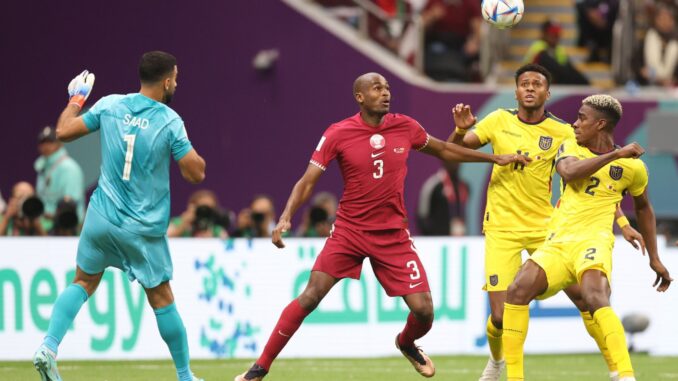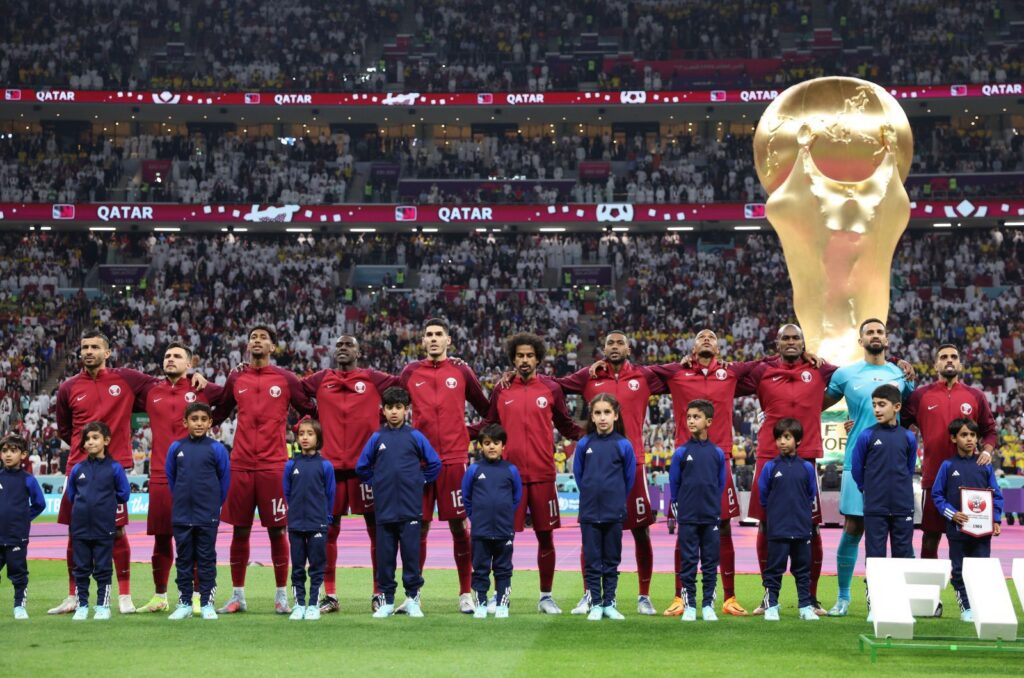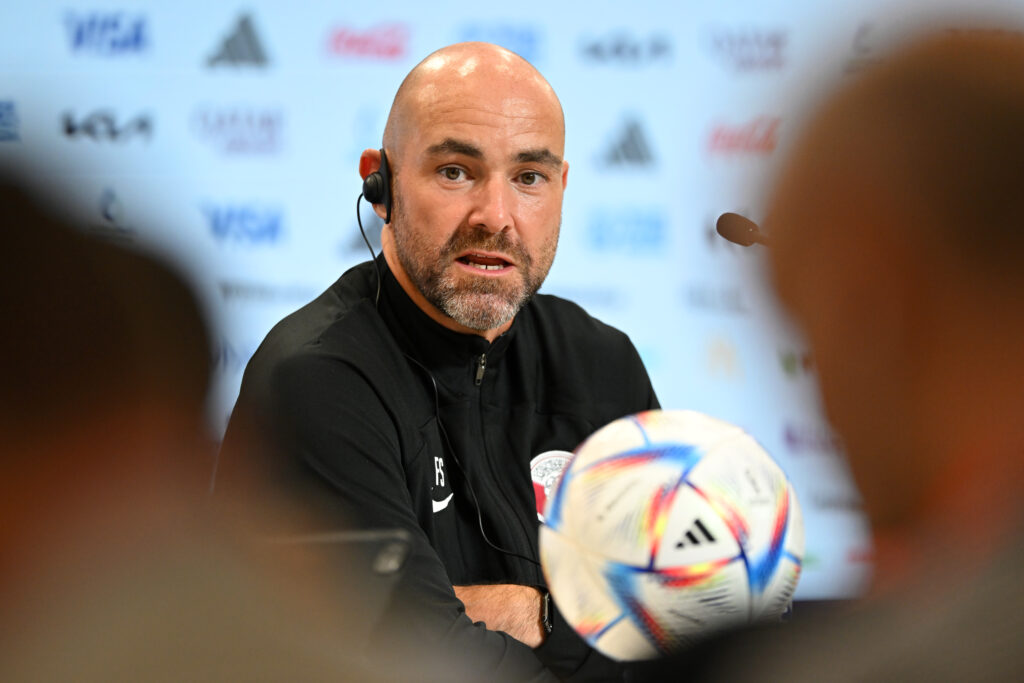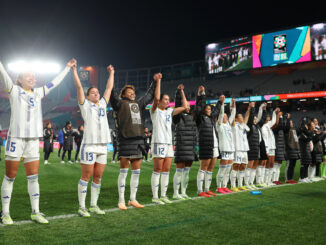

The Asian Game’s coverage of the FIFA World Cup Qatar 2022 is proudly sponsored by SMC.
Qatar’s preparation for this World Cup was meticulously planned, perhaps more so than any other host nation in previous years. Every movement of the players, from where they played their club football to extended training camps year after year, was controlled to ensure they were ready for this moment; a moment 4372 in the making.
This was not in the plan.
Coming into the opening game there were questions asked around the logic of a six-month Spanish sojourn that took them away from their club teams and away from the rhythm of week-to-week football. The fear was the team would not be ready for such a hot stage as the opening game of the World Cup.
Those fears materialised in the opening 45 minutes; a 45 minutes in which the defending Asian Cup champions looked more like a side that had been sunning themselves on a Spanish beach rather than preparing for the biggest tournament of their lifetimes.
They looked like eleven deer in the headlights.
No one player encapsulated that more than goalkeeper Saad Al-Sheeb who had a first half that will haunt him for years to come. His lack of conviction, first in trying to clear the ball that led to Ecuador’s disallowed opener, and then in his hesitation in coming out that led to him giving away a penalty shortly after, spoke to a player that was short of match sharpness.
It was illustrative that as the half wore on the team’s best player, and their creative fulcrum, Akram Afif was dropping deeper and deeper to try to influence the game such was Qatar’s inability to generate any form of possession that was capable of bringing the Al Sadd star into the game.
Ecuador, meanwhile, were finding space and gaps at will, capitalising on inexplicable and inexcusable errors from players that we know are capable of much more. Nerves can be forgiven on such a big occasion; no Qatari player ever has, or likely ever will, feature on such a stage again when the global spotlight is at its brightest.
Thai spotlight seemed to blind the players, and such was their inauspicious start that soon the entire side was inflicted with almost a sense of panic from which they would never recover. In the blink of an eye Ecuador had a first, and then a second. There was no coming back from there. The mortal blow had been struck to body and mind.
Qatar had a chance to get back into the game on the stroke of half time when they were finally able to play their way through the Ecuadorian defence, but faced with a free header Almoez Ali sliced his header wide. In a half in which nothing had gone right for Qatar, that felt like their chance to right their wrongs, but again they fluffed their lines.
While Ecuador didn’t manage to add to their two goals in the second half, the sight of thousands of empty seats as the second half kicked off told the story – the fans had seen enough.
As far as opening games go, this couldn’t have gone much worse for Qatar. With so much rhetoric about their so-called lack of football history in the build up to this tournament, this was an opportunity to prove the doubters wrong, instead their performance justified all the barbs that had been thrown their way in the preceding years.
While a 0-2 defeat means they are far from out of the tournament with two games to come, their damaged morale will take some recovering in the short turnaround between games. The reputational damage, however, may never be repaired.
WHAT WE LEARNED
Qatar got their preparation wrong
Whatever you slice or dice it, Qatar’s decision to spend six months on a Spanish sojourn has backfired in spectacular fashion. The players looked rusty and devoid of any rhythm, which they would have had had they spent the past few months playing regularly, weekly football with their clubs sides rather than on the training pitch in Spain.

Lack of competition breeds complacency
On one hand Qatar’s stability can be viewed as a positive, with the bulk of the starting XI against Ecuador being the same across the last few years. But with a lack of fresh options coming through from underneath it is clear the lack of competition for spots within the team is hurting their progress, and that’s not something that can be fixed overnight.
Felix Sanchez’s time might be up
No one can doubt the incredible job the Spaniard has done over the past decade within Qatari football, but it’s clear that post-World Cup Qatar could use with a freshen up. A new voice, new ideas and a new challenge for the players. If this is how it ends for Sanchez it will be a great shame given everything he has given and delivered for Qatari football, but it’s hard to see the benefits of him staying on after this tournament.
WHAT THEY SAID
Felix Sanchez – Qatar Coach
“There’s no excuse. We want to congratulate our opponents, they deserved to win.
“There is a lot of room for improvement. Maybe the responsibility and nerves got the best of us. We didn’t start well. It was a terrible start, actually.

“Our nerves betrayed us. We were unable to string together four passes in a row. Also, many defensive gaps. The team was not balanced and that hurt us a lot.
“When you play against a team of this level…you pay for it.”
WHAT COMES NEXT
Next is the chance for redemption for Qatar when they take on Senegal on Friday. While the African are without their star man Sadio Mane, they will still pose a significant challenge for Qatar. If Felix Sanchez’s side are to have any hope of recovering to advance to the Round of 16 they need to take something from this encounter, but based on the performance at the Al Bayt Stadium on Sunday night, such a turnaround in form is hard to see coming.
Photo: twitter/QFA_EN




